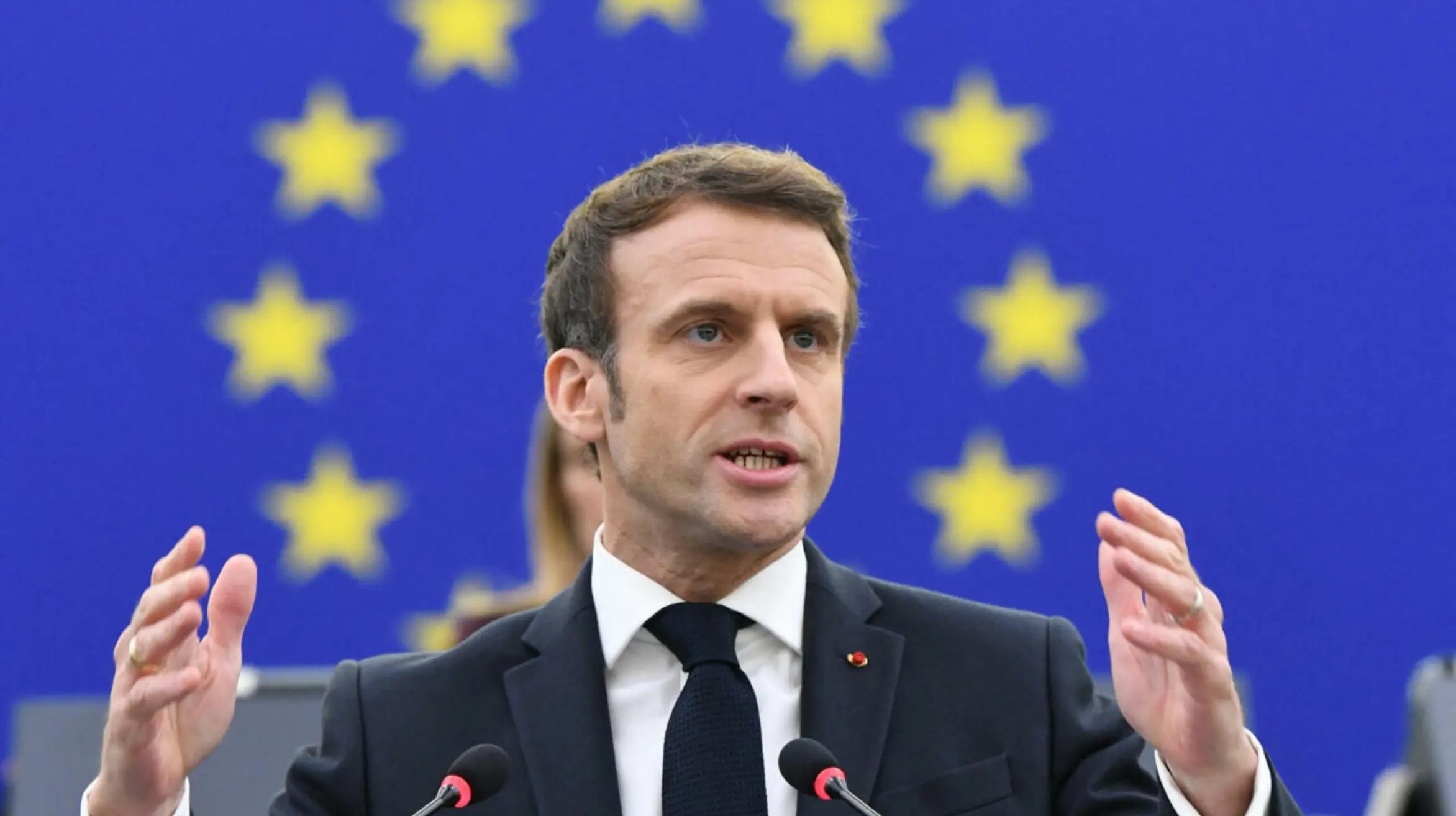Paris (Parliament News) – French President Macron emphasizes the need for a comprehensive European security framework, highlighting the importance of working closely with non-EU partners like the UK to counter threats from Russia and other risks.
French President Emmanuel Macron admitted that the European Union alone might not be adequate to counter threats posed by Russia. He stressed the importance of working closely with non-EU partners, including the United Kingdom, to produce a comprehensive European security framework.
Why Does Macron Stress UK Collaboration in European Security?
Talking to The Economist, Macron recalled the changing security landscape, pointing out a mixture of risks that Europe faces. “We have risks linked to Russian missiles,” he explained. “We have the Russian nuclear risk…and perhaps the risk of proliferation in Iran and others.”
These situations have led Macron to call for a strategic method for European security that involves not only EU member states but also other European nations including the UK.
Is Macron Advocating for a Unified European Strategy?
The French President also highlighted the need for a unified European strategy for security, while also retaining each country’s sovereignty. “We need an in-depth strategic discussion with all Europeans who are prepared to do so,” he stated, referring to the UK’s role as a “privileged partner” for France in terms of defence cooperation. This suggests that even after Brexit, the UK has a crucial function to play in Europe’s defence strategy.
Should Nuclear Weapons be Included in European Defence Debates?
The French leader addressed the function of nuclear deterrence in European defence, explaining that it was a sovereign decision for France. However, he suggested that a broader debate on European defence must include nuclear capabilities. “If we want to build an effective and credible strategic concept of joint defence…nuclear weapons must be included in the debate,” Macron stated. He highlighted that this should be done while respecting the existing rules and sovereignty of each country involved. When asked if he acknowledged the European Union was “not enough” on its own to guarantee Europe’s security, Macron represented himself as a pragmatist.
Does Macron Believe in the Effectiveness of EU Security?
“I believe very deeply in Europe,” he said. However, he commented that the EU has not traditionally regarded itself as a military power, focusing more on economic and political integration. Macron indicated that a joint European security framework should not be confined to EU member states, mentioning the significance of partnerships with non-EU countries like Norway and the UK.
He contended: “It would be a mistake to exclude countries that have never been in the EU, or recently were, such as Norway, the United Kingdom or the Balkans. We have joint missile programmes, including with the British.” Macron’s remarks come as European countries persist in grappling with the evolving security dangers from Russia, particularly in light of the continuing conflict in Ukraine. His call for a broader, more inclusive strategy for European defence underscores the need for solidarity and coordination across the continent, beyond traditional EU structures.

